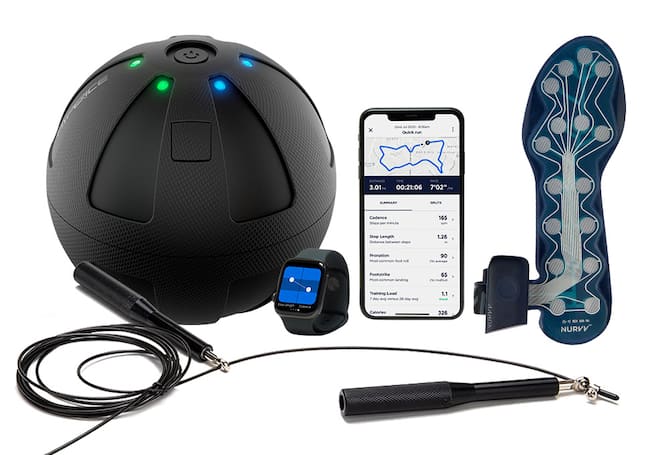Best Tech Products to Help Manage Your Weight

carousel
Use technology to reach your health goals faster.
The causes of weight gain.
Unhealthy weight gain may result from an array of factors, including:
- Diet: The quantity and quality of food you eat affects weight loss and gain
- Genes: Some people have a genetic predisposition to gain weight more easily than others
- Physical inactivity: Exercising touts many health benefits, including weight loss
Another leading cause of weight gain is poor sleep health. A good night's rest can help you maintain a healthy weight, lower your risk of certain health problems, boost your immune system and give you enough energy for your daily routine and an exercise program.
Problems associated with being underweight.
How to evaluate your weight.
Various methods of weight evaluation exist for adults and children. A common technique used in adults is the measurement of your body mass index (BMI). This is a measure of your body fat based on your height and weight. Weigh yourself and measure your height to find out your BMI category.
You can figure out your BMI by dividing your weight in pounds by your height in inches squared and multiplying by 703. If you'd rather not have to do the math, there are plenty of BMI calculators online where you simply type in your weight and height and the calculator does the work for you.
A BMI rating of between 18.5 to 24.9 is healthy, while if your BMI is 25.0 to 29.9, you might be overweight. While ratings above 30 indicate obesity, it’s a good idea to consult a physician to learn what weight management steps are needed to achieve a healthier physique.
What Is weight management?
Tips for maintaining a healthy weight.
Once you achieve your goal weight, you need to make healthy life changes to maintain it. Here are some useful weight management tips:
- Exercise often: High activity helps maintain weight loss; aim for 200 to 300 minutes of exercise per week as per guidelines by the American College of Sports Medicine (ACSM)
- Don't skip breakfast: Eat a healthy meal at the beginning of each day
- Hydrate: Drink plenty of water or unsweetened, calorie-free beverages
- Stick to whole foods: Create a healthy eating pattern of whole, unprocessed foods that are rich in fiber and have lean protein
- Replace bad fats like saturated and trans fats with monosaturated and polyunsaturated fats. These are good fats and help with weight loss and maintenance by helping you to feel satisfied
- Eat mindfully and responsibly: Pay attention to portion sizes and avoid overeating; look at the nutrition facts on food labels and serving sizes
- Plan meals: Reserve restaurant dining for special occasions and plan home-cooked meals ahead of time, which helps avoid making unhealthy choices influenced by hunger
- Decrease screen time: Less time on your feet means fewer calories used, so more movement and less scrolling through social media is a crucial addition
- Hold yourself accountable: Take weekly weight measurements and keep records to visually see your progress
Make small changes gradually to ensure your long-term success. Plan a single change at a time and incorporate it into your lifestyle. Once you master it, move to the next change. Finally, try to stay positive. There are always going to be some days that are better than others. Pick yourself up and move on after the tough days. Keep updating your goals as new situations arise.
Weight management technology.
1. Smart home gym equipment.
2. Workout apps and streaming services.
3. Fitness trackers and tracking apps.
4. Heart rate monitors.
5. Smart scales.
Ditch your old bathroom scale for a smart model. Smart weight scales connect to your smart devices and monitor your weight efficiently. Some can measure multiple metrics, including your basal metabolic rate (BMR), BMI, body fat percentage and muscle mass.
Other gadgets that you can incorporate into your weight management program are muscle stimulators and muscle toners. Check out the diverse range of tech products within exercise and fitness equipment to maximize your weight management results.
Additional information:
These statements and any information contained herein are intended for educational purposes only and are not meant to substitute for medical care or to prescribe treatment for any specific health condition. Carefully review product labels for instructions and important safety information and consider consulting with a health care professional regarding your use of health and wellness products.